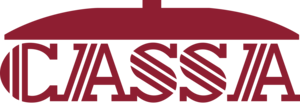The Legal Education for Refuge Women toolkit was introduced in 2020. CASSA’s ‘Legal Education for Refugee Women’ Toolkit aims to bridge the various barriers that stand in the way of refugee women integrating into their communities by helping them understand their rights and responsibilities in Canada and giving them the information needed to advocate for themselves. The most problematic barriers are a lack of available legal information in their native language, a lack of awareness of available programs and services, and a lack of accessible information available to refugee women to make informed decisions for their and their family’s well-being. The population of refugee women was specifically targeted for this toolkit, as refugee women are more vulnerable to exploitation, sexual and gender-based violence, reproductive health risks, oppression, and poverty, due to language barriers, isolation from family, precarious work conditions, and uncertain immigration status (Status of Women Canada, 2015). For the purposes of this toolkit, the population of refugee women encapsulates convention refugees, protected persons, and refugee claimants. Distinctions for each subgroup will be elaborated on throughout the toolkit, where appropriate. This toolkit has documented rights and responsibilities applicable to refugee women with regard to various topics that are of concern and interest to them. These topics include legal aid, family law, child rights and benefits, immigration, employment, health care, education, housing, and financials. Additionally, it contains a list of numerous supports and organizations in Toronto and London, Ontario that they can access for additional support and assistance. We hope that refugee women across Ontario will be able to access and use this toolkit, thereby increasing their awareness of their rights and responsibilities and decreasing their chances of becoming victims of discrimination, exploitation, oppression, and/or abuse. We also see this toolkit providing refugee women with the resources needed for them to integrate into Canadian society; overcoming their social isolation and embracing their ability to advocate for themselves and their rights. The ultimate goal is having refugee women cease to feel like they are second-level participants in the decision-making processes relating to their and their children’s lives. This toolkit is available in four different languages in an attempt to bridge the language gap faced by refugee women when trying to access legal help and/or information. The languages that the toolkit is available in are: English, Arabic, Tamil, and Urdu. This toolkit is NOT legal advice, nor is it an advocacy document. It is simply legal information that can aid refugee women in identifying their problems and reaching out for the appropriate support. This toolkit does not replace any agency or organization’s policy, service, or referral process. For legal advice, a legal expert should be consulted. Find the toolkit and more about it on our website.cassa.ca/toolkit-2020/

CASSA’s mission is to facilitate the economic, social, political, and cultural empowerment of South Asians by serving as a resource for information, research, mobilization, coordination, and leadership on social justice issues affecting our communities.
Our Charitable Registration Number: 13587 5599 RR0001
CONTRIBUTE
LAND ACKNOWLEDGEMENT
The work of CASSA takes place on traditional Indigenous territories of the Huron-Wendat, Haudenosaunee, and the territory of the Mississaugas of the Credit.
REACH OUT
(416) 932 1359, (647) 932 1001 (ext. 14)
cassa@cassa.ca
705 Progress Avenue, Unit 101
Toronto, ON M1H 2X1
British Columbia Satellite Office
Unit #205, 12725 - 80th Avenue, Surrey, BC V3W 3A6
Close Menu
- About us
- Membership
- Projects
- Racialized Health Working Group Initiative
- Together We Rise Arts Festival
- #EradicateHate 2.0
- Annual Health Equity Summit
- South Asian Heritage Month Campaigns
- South Asian Vaccine Engagement Collaborative
- Gender-based Violence Research Study
- Hate Crime Reporting Project
- Coalition for Racial Equity in Education
- GTA GBV Study
- High Priority Communities Strategy
- Policies that Perpetuate Systemic Racism
- New Horizons for Seniors Program
- The International Students Project
- Training & Workshops
- Opportunities
- Contact us
- Donate
